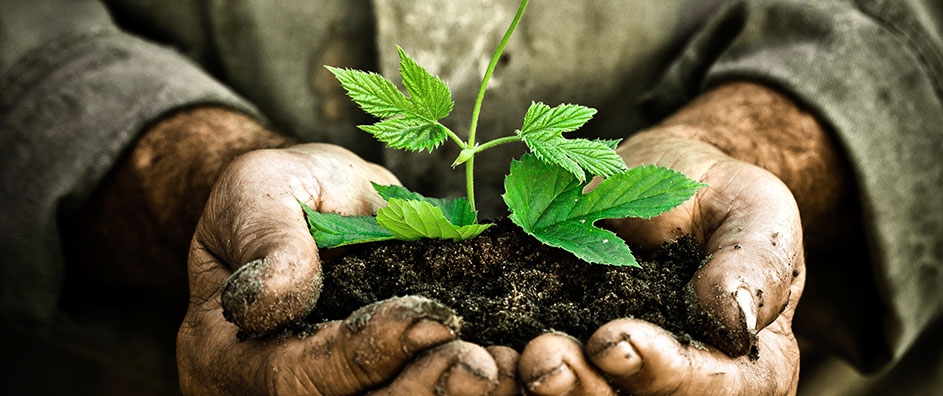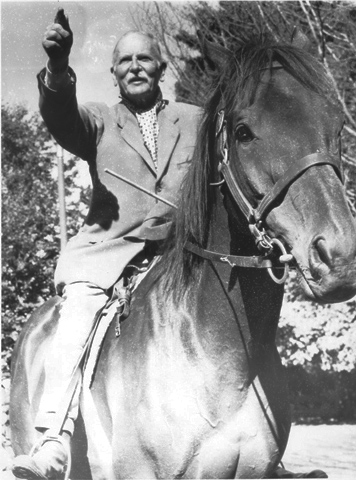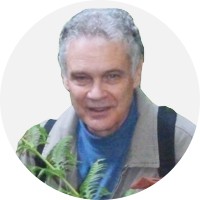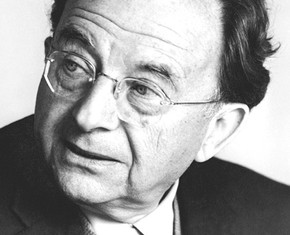The views expressed in our content reflect individual perspectives and do not represent the authoritative views of the Baha'i Faith.
O people! The Tree of Life hath verily been planted in the heart of the heavenly paradise and bestoweth life in every direction. – Baha’u’llah, Gems of Divine Mysteries, p. 51.
The pioneering environmentalist Richard St. Barbe Baker said that “Planting a tree is a symbol of a looking-forward kind of action; looking forward, yet not too distantly.” He believed that preserving old-growth forests and replacing and multiplying trees made it “…natural to think for the future, for other people, for generations yet unborn.” He believed that:
The simple act of planting a tree, which is in itself a practical deed, is also the symbol of a far-reaching ideal, which is creative in the realm of the spirit, and in turn reacts upon society, encouraging all to work for the future well-being of humanity rather than for immediate gain.
The diverse paths that Richard St. Barbe Baker (1889-1982) took through the course of his long life all converged on one goal, easily summed up in one word: trees.
In pursuit of that goal, St. Barbe had a remarkable range of occupations and roles: nurseryman, beekeeper, ship’s hand, carpenter, cowboy, lumberjack, homesteader, newspaper reporter, soldier and cavalry officer in World War I, inventor, scholar, forester, hunter, explorer, photographer, mystic, tribal elder, author, mounted policeman, lecturer, raconteur, educator, researcher, economist, horticulturist, organizer, philanthropist, vegetarian activist, ecologist, anthropologist, choral director, diplomat, environmentalist, botanist, filmmaker, publicist, lobbyist, consultant, spokesman, Baha’i teacher…
In each of these identities, through the course of every shape-shifting phase of his worldwide travels and undertakings, he maintained a solid spiritual underpinning. His religious upbringing, his connection with nature and indigenous peoples’ wisdom, and his unshakeable dedication to the Baha’i Faith–all helped him weather the uncertainties and inevitable disappointments he faced in his labors for planetary afforestation.
To heads of state and government officials in every continent he gave the message: “You can gauge a nation’s wealth, its real wealth, by its tree cover.” He insisted that, “The health and the economic security of the human race depend on how well the forests of the world are managed.” Now, decades later, his observations have proven amazingly prescient.
St. Barbe’s layers of accomplishment in forestry overshadow the energy he brought to other philanthropic and cultural endeavors. For example, in the aftermath of WWI he noted the large number of veteran underclassmen at Cambridge suffering from war-inflicted disabilities. To aid them, he established on campus a therapeutic and productive Amateur Beekeeper’s Club, procuring the necessary patron, equipment and supplies, and providing the training himself.
While on safari in Nigeria he encountered groups of outcast lepers in the jungle. He appealed to the Colonial medical establishment, which refused to acknowledge the lepers’ existence. At his own expense St. Barbe procured medicine, found a trained dispenser, and instituted a treatment center. Then he obtained seed from India and planted thousands of Hydnocarpus Wightaena trees to establish a future supply in Africa of the then-current medicine for combating leprosy.
His writings and photographs depict ways of life and thought, some now lost, among the indigenous people of Africa. His extensive and forthright personal accounts of their telepathic abilities will fascinate generations to come. His book Africa Drums, although currently out-of-print, remains a significant contribution to anthropology.
While in Palestine in 1929, he spent three weeks filming, on four-hundred foot reels, Sir Flinders Petrie’s archeological digs of ancient Roman, Greek, and Hebrew ruins at Tel Farah, one of the far-flung cities of Judah. He filed news stories from the site with The Times of London. On the outskirts of Jerusalem, he oversaw the revival–which he had helped instigate–of the Feast of the Trees, with four thousand schoolchildren taking part in tree planting before sixteen thousand onlookers.
St. Barbe offered a creative response wherever he could. After World War I he successfully helped lobby for the creation of a Ministry of Health in England. At another time, through inspirational talks, he lifted fifty youngsters from lives of poverty in some of the poorest mining communities of England to new starts on farms in Canada. To assist Australian servicemen returning home after World War II, he made a film to convince the English public to eat Australian oranges. He headed a campaign to save the elm trees of Hyde Park in London. He wrote in support of land reform to benefit the poor in India, organized disaster relief after earthquakes struck Iran. He spurned ideological contention by praising the tree-planting initiatives of Russia and China, and the Islamic countries of Pakistan, Egypt and Kuwait.
The pace and range of his activities occasionally caught up with him. In conjunction with a serious illness in late 1974, St. Barbe’s surgeon gave him one more year to live. However, the medical prognosis did not take into account St. Barbe’s adamantine will, steeled by his sense of purpose. He pulled through, only to resume his role as advocate and protector of the planet’s trees for eight more years, and exemplify this Baha’i ideal:
Strive ye with all your hearts, raise up your voices and shout, until this dark world be filled with light, and this narrow place of shadows be widened out, and this dust heap of a fleeting moment be changed into a mirror for the eternal gardens of heaven, and this globe of earth receive its portion of celestial grace.
Then will aggression crumble away, and all that maketh for disunity be destroyed, and the structure of oneness be raised–that the Blessed Tree may cast its shade over east and west… – Selections from the Writings of Abdu’l-Baha, p. 36.

















Comments
Sign in or create an account
Continue with Googleor